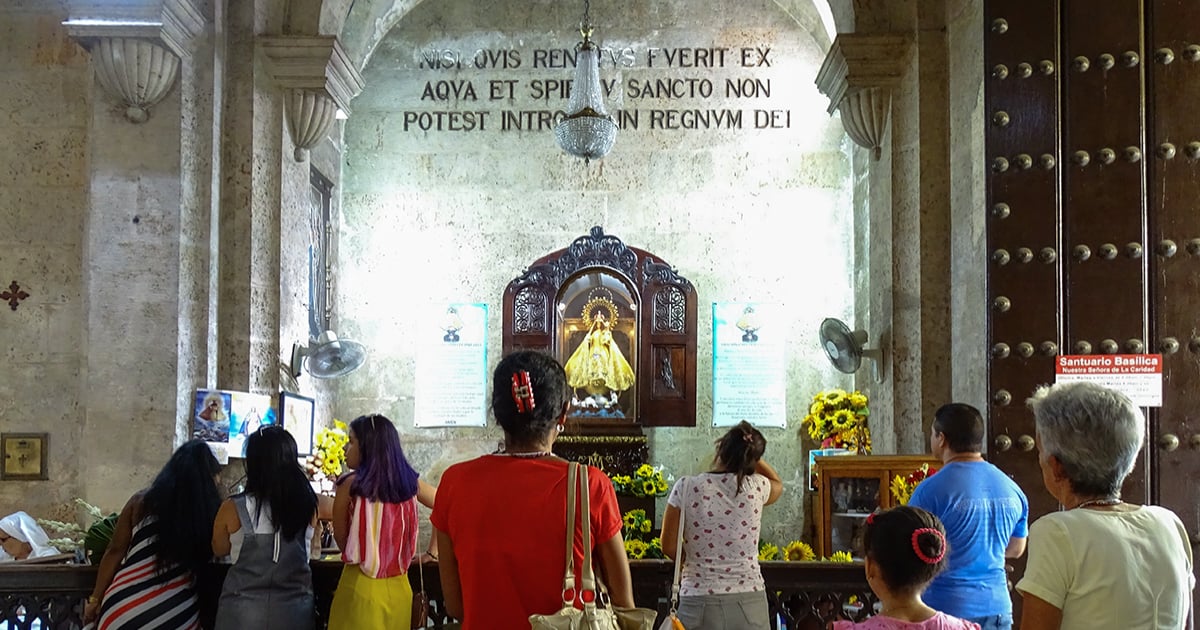The U.S. Department of State has spotlighted significant religious freedom violations in Cuba in its 2023 annual report on the subject. The 2023 International Religious Freedom Report outlines that the Cuban regime continues to impose severe restrictions and retaliations on religious practices, affecting various faith communities on the island.
The report emphasizes that the Cuban government maintains strict control over religious activities, including surveillance and harassment of religious leaders, denial of permits for building places of worship, and interruption of religious services. It notes that the period saw documented cases of arbitrary detentions, threats, and violence against individuals openly practicing their faith.
Targeted Communities
Among the most affected groups are evangelical Christians, Catholics, and members of other Christian denominations, as well as practitioners of Afro-Cuban religions such as Santería. The report also highlights restrictions on Jehovah’s Witnesses and Muslims, who face challenges in practicing their rituals and obtaining legal recognition for their organizations.
One of the most criticized practices in the report is the government’s interference in the internal affairs of religious communities, including the infiltration of security agents into religious events and coercion of religious leaders to collaborate with authorities. This intrusion has created an atmosphere of fear and mistrust among the faithful, hindering the free expression of faith.
The Department of State underscores the lack of transparency and the arbitrary application of laws regulating religious activities, which allows the government to repress religious communities with impunity. The report urges the Cuban government to respect the fundamental right to religious freedom, in line with Cuba’s international commitments.
Additionally, the report highlights the role of civil society and international organizations in denouncing these violations and defending religious freedom on the island. It calls on the international community to continue pressuring the Cuban regime to ensure respect for human rights and fundamental freedoms for all its citizens.
“The United States firmly believes that everyone in Cuba should be able to live with dignity, with their labor and religious rights fully respected. The protection of these rights is an ongoing commitment and must always include contributions from civil society,” expressed the U.S. Embassy in Cuba on the social network X while publishing the document.
U.S. embassies in other countries also released chapters of each nation based on information from government officials, religious groups, non-governmental organizations, journalists, human rights monitors, academics, media, and others. The Office of International Religious Freedom, based in Washington, collaborates in gathering and analyzing additional information from consultations with foreign government officials, religious groups, domestic and international non-governmental organizations, multilateral and international organizations, journalists, academic experts, community leaders, and other relevant U.S. government institutions for the preparation of the reports.
Frequently Asked Questions about Religious Freedom Violations in Cuba
To provide further clarity on the highlighted issues, here are some common questions and answers regarding religious freedom violations in Cuba.
What are the main religious freedom violations reported in Cuba?
The main violations include severe restrictions and retaliations against religious practices, surveillance and harassment of religious leaders, denial of permits for worship places, interruption of religious services, arbitrary detentions, threats, and violence against openly practicing individuals.
Which religious groups are most affected by these violations?
Evangelical Christians, Catholics, members of other Christian denominations, practitioners of Afro-Cuban religions such as Santería, Jehovah’s Witnesses, and Muslims are among the most affected groups.
How does the Cuban government interfere in religious activities?
The government interferes by infiltrating security agents into religious events and coercing religious leaders to collaborate with authorities, creating an atmosphere of fear and mistrust among the faithful.
